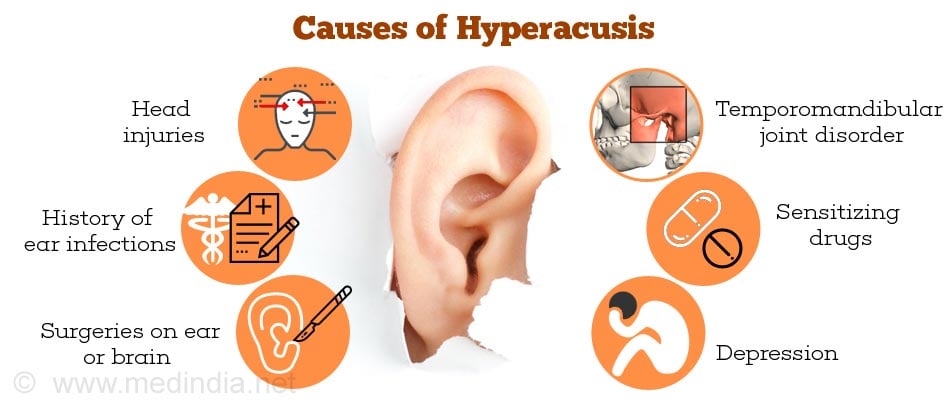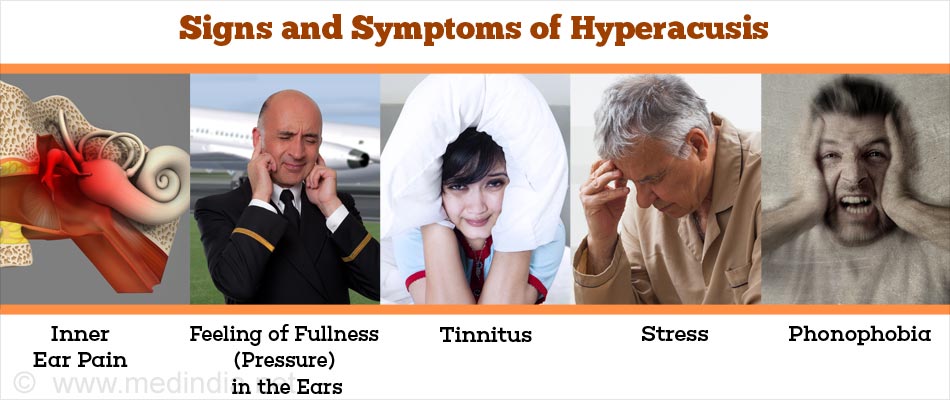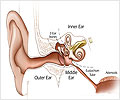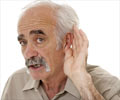- Hyperacusis - (http://www.asha.org/uploadedfiles/ais-hyperacusis.pdf)
- Tinnitus and hyperacusis - (http://www.hear-it.org/tinnitus-and-hyperacusis)
- Know More About Hyperacusis - (https://www.ncbi.nlm.nih.gov/pmc/articles/pmc539655/)
- About Hyperacusis - (https://en.wikipedia.org/wiki/hyperacusis)
- VESTIBULAR HYPERACUSIS - (http://vestibular.org/vestibular-hyperacusis)
Introduction to Hyperacusis
Hyperacusis (or hyperacousis) is a rare hearing disorder characterized by an abnormal sensitivity to noises or high-pitched sound. It is a chronic disorder and is usually accompanied by tinnitus or ringing sound in the ears in 40-86% of the people. This condition can occur with normal hearing or those with hearing loss. Hyperacusis on its own affects only 1 in 50,000 people, but is present in 1 in 1,000 people who have tinnitus. It affects people of all ages groups and can affect one or both ears.
Other names for similar symptoms are phonophobia (fear of sounds), and misophonia (hatred of specific sounds).
People who are affected with hyperacusis have difficulty in tolerating sounds which are not usually loud to others, such as the common noise from:
- Alarms & Bells
- Screaming, shouting, laughing or Whistling
- Riding In a Car
- Barking dogs
- Noise from automobiles
- Musical instruments
- Walking On Leaves
- Dishwasher
- Fan On The Refrigerator
- Running Faucet Water
- Shuffling Papers
- Clanging of silverware and dishes
What are the Types of Hyperacusis?
There are two types:
- Cochlear Hyperacusis
- Vestibular Hyperacusis
Cochlear hyperacusis is the most common type and it damages the sound sensing organ (cochlea)
Vestibular hyperacusis - Affects Vestibular (balance) system. It combines brain's maintenance of upright balance and the sense of hearing. Instead of recognizing sound as intolerable, the brain recognizes them as movement sensations, disturbance to postural balance and/or visual focus.
What are the Causes of Hyperacusis?
Hyperacusis can present acutely or may be a chronic condition.
Generally hyperacusis has more than one cause and is commonly associated with tinnitus.
Head injuries, even mild in nature can cause hyperacusis.
Other causes include:
- History Of Ear Infections
- History of hearing problems
- Taking Ear Sensitizing Drugs
- Job related noise exposure,
- Surgeries on ear or brain
- Lyme disease
- Ménière's disease
- Temporomandibular joint disorder
- Bells’ Palsy
- Depression
- Addison’s Diseases
- Brain related disorders

There is also some evidence that suggests that chemical imbalances of neurotransmitters in the brain can cause this condition.
If the condition is left untreated, it may lead to increased stress levels, anxiety and phonophobia (psychological fear of sound).
What are the Signs and Symptoms of Hyperacusis?
People with hyperacusis have increased sensitivity to everyday sounds in their surrounding. Due to this condition their quality of life is affected, and they may wear earplugs or earmuffs in public, where they cannot tolerate the noise.
Symptoms of Hyperacusis include:
- Inner Ear Pain
- Feeling Of Fullness (Pressure) In The Ears.
- Very Low Threshold To Sound
- Tinnitus (Ringing Sounds In The Ears).
- Difficulty In Sleeping
- Stress
- Phonophobia

How do you Diagnose for Hyperacusis?
A medical evaluation is performed by an audiologist & otolaryngologist (an ear, nose and throat physician) to examine the patients s condition & severity of symptoms.
Diagnosis for Hyperacusis is confirmed using Audiograms or hearing tests that can detect the increased sensitivity.
How do you Treat Hyperacusis?
There are no specific medications or surgeries that can treat hyperacusis, although treating any underlying cause can help resolve the condition.
The most common treatment for hyperacusis is retraining therapy, which uses broadband noise.
Tinnitus Retraining Therapy (TRT) : TRT is habituation-oriented therapy. The goal of this therapy is to reduce the patient's reactions to hyperacusis.
Sound therapy is used to decrease a patient's sensitivity to sounds and to teach them to view sound in a positive manner. TRT consists of a combination of counseling and sound therapy, for which the patient uses low-level sound for several hours a day.
It is important that the physician determines the patient's Loudness Discomfort Levels so that the hearing tests can be adjusted accordingly and this is done by using brainstem auditory evoked response.
Other treatments for hyperacusis include counseling and cognitive behavioural therapy
Counseling - Counseling session involves an in-depth discussion of the tests, anatomy and physiology of the hearing mechanism and how it relates to hyperacusis. It focuses on educating the patient and helps to relieve their fears and concerns.
Cognitive Behavioural Therapy (CBT) - It helps people to
- Explore
- Reduce distress towards troublesome noises,
- Change avoidance behaviour
- Recover from hyperacusis symptoms
Lifestyle changes -
- Practice some relaxation techniques such as deep breathing
- Listen to calming music or sounds,
- Don’t avoid noisy situations
- Don’t use earplugs or muffs all the time. These can make your ears more sensitive by altering the brain’s calibration of loudness.












